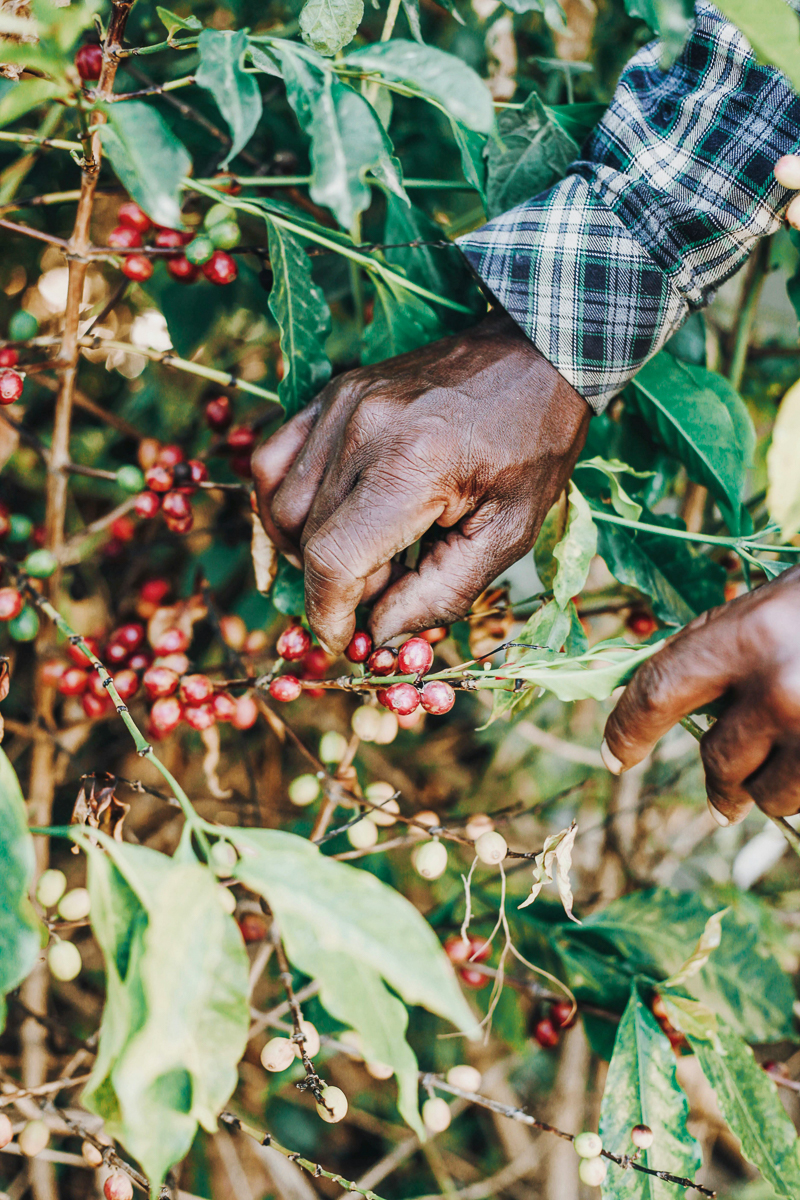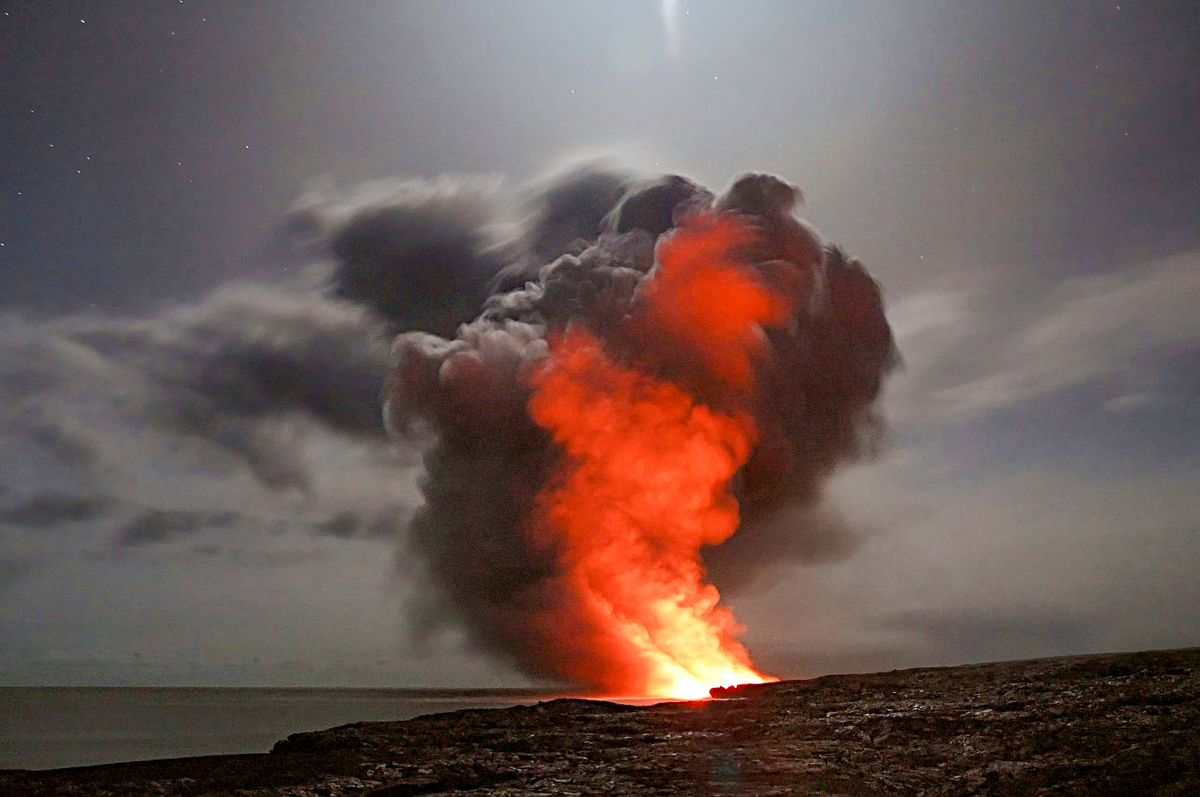The Hidden Cost of Coffees: A Chinese Medicine Understanding
How Heat, Dampness, and Overstimulation Disrupt Vitality and Accelerate Depletion
In Classical and Traditional Chinese Medicine (CCM and TCM), the cultivation and preservation of Qì, Yuán Qì (Original or Source Qì), and Jīng (Essence) are foundational to sustaining long-term health and vitality. These Three Treasures are the essential energetic substances that animate life—and maintain health. While Qì can be restored through breath and food (see The Eight Types of Qì), Yuán Qì and Jīng are more finite in nature, inherited at birth, and stored in the Kidneys (Shèn).
Preserving—and when possible, restoring—Qì, Yuán Qì, and Jīng depends on the rhythms of everyday life: diet, rest, emotions, and habits. One such habit with significant implications for these foundational energies is the consumption of coffee.
Coffee, Heat, Dampness, and Pathology
Viewed through the lens of both Classical Chinese Medicine (CCM) and Traditional Chinese Medicine (TCM), coffee is understood to generate internal Heat (Rè) due to its inherently warming and stimulating properties.
While occasional stimulation may help some individuals overcome stagnation or internal Cold, frequent consumption—such as a daily coffee habit—introduces pathological Heat, potentially aggravating existing imbalances, particularly patterns such as Liver Fire (Gān Huǒ) and Stomach Fire (Wèi Huǒ).
- Liver Fire (Gān Huǒ) – Irritability, red eyes, headaches, restlessness
- Stomach Fire (Wèi Huǒ) – Heartburn, excessive appetite, foul breath, gum inflammation
Pathological internal Heat disturbs homeostasis and places strain on the body’s Yīn—the cooling, moistening, and regulating aspect of physiology. Individuals who are constitutionally Yáng Excess (Yáng Shèng) or Yīn Deficient (Yīn Xū) may be especially susceptible to the destabilizing effects of ongoing Heat accumulation.
The Systemic Effects of Heat (Rè)
In both Classical and Traditional Chinese Medicine (CCM and TCM), Rè (Heat) is considered a Yáng pathogenic factor. It dries fluids, agitates the Spirit (Shén), and accelerates physiological processes—all of which may contribute to inflammation, emotional volatility, and the premature depletion of vitality.
The etiology of internal Heat may arise from either excess, such as in Liver Fire (Gān Huǒ), or from deficiency, most commonly seen in Yīn Deficiency Heat (Yīn Xū Rè)—a condition in which the body’s cooling systems are too depleted to restrain rising Heat.
Common patterns of internal Heat (Rè) include:
- Restlessness and insomnia
- Red complexion and dry mouth
- Rapid speech or heartbeat
- Red tongue with yellow coating
- Rapid pulse (Shù mài)
Chronic internal Heat—particularly when rooted in Yīn Deficiency—may contribute to systemic inflammation, emotional instability, and signs of accelerated aging, such as dryness, irritability, or diminished resilience.
What Is Resilience?
Within the context of Classical and Traditional Chinese Medicine, resilience refers to the body’s ability to adapt to stress, recover from depletion, and restore internal balance after disruption. True resilience is not merely the capacity to endure or push through hardship—it is the ability to regulate, replenish, and renew without exhausting core reserves such as Qì, Yuán Qì, and Jīng.
Resilience depends on the harmonious interplay—the internal balance—of Yīn and Yáng, the smooth flow of Qì, the integrity of the Spleen and Kidneys, and the stability of the Shén. It is reflected in emotional steadiness, restorative sleep, digestive strength, and the ability to meet life’s demands without burnout or collapse.
In a contemporary context, resilience also includes the ability to resist cultural patterns of overextension—to know when to pause, when to question, when to nourish, and when to return to rhythm. It is a quiet strength rooted in sustainability, not stimulation.
Resilience is one expression of forest wisdom: adaptive, grounded, and cyclical—capable of enduring through change without losing coherence.
Yīn Deficiency (Yīn Xū) and the Drying Effect of Coffee
Yīn governs moisture, substance, nourishment, and internal cooling within the body. It balances Yáng, which drives activity, warmth, and transformation. When Yīn is depleted, it becomes increasingly difficult for the body to regulate internal Heat.
Coffee, due to its inherently stimulating and drying nature, disperses Yáng energy but draws heavily on Yīn—especially in individuals who are constitutionally Yīn Deficient (Yīn Xū) or chronically overworked. Over time, this imbalance gives rise to Yīn Deficiency Heat (Yīn Xū Rè), a condition in which Heat emerges not from excess, but from depletion.
Common patterns of Yīn Deficiency (Yīn Xū) include:
- Night sweats
- Dry skin, eyes, and mouth
- Warmth in the palms, soles, and chest
- Tinnitus
- Insomnia
- Red, peeled tongue with little or no coating
- Thin pulse (Xì Mài)
When left unaddressed, Yīn Deficiency impairs resilience, reduces regenerative capacity, and predisposes the body to chronic inflammatory states, nervous system dysregulation, and gradual constitutional decline.
Coffee and Dampness (Shī)
In addition to generating Heat, coffee contributes to internal Dampness (Shī), particularly by weakening the Spleen (Pí) and Stomach (Wèi)—the organs responsible for the transformation and transportation of fluids.
Although coffee promotes urination, its diuretic nature ultimately depletes fluids and undermines the Spleen’s capacity to metabolize moisture. This leads to the accumulation of untransformed fluids and turbid stagnation—a hallmark of internal Dampness.
Common patterns of internal Dampness (Shī) include:
- Heaviness in the limbs
- Bloating or sluggish digestion
- Loose stools
- Mental fog or fatigue
- Swollen tongue with teeth marks
- Thick, greasy tongue coating
- Slippery pulse (Huá Mài)
If Dampness becomes chronic, it may transform into Phlegm (Tán), impair the Shén, or combine with Heat to form Damp-Heat (Shī Rè)—a particularly stubborn and pathogenic pattern that can give rise to systemic inflammation, digestive stagnation, emotional instability, and, over time, the development of accumulations such as cysts, nodules, or other chronic conditions that resist resolution.

Coffee, Overstimulation, and the Depletion of Yuán Qì and Jīng
Yuán Qì is the original Qì—the source Qì—inherited from one’s parents and stored in the Shèn (Kidneys). (For a complete understanding of Yuán Qì, see The Eight Types of Qì) Jīng, or Essence, is the foundation of growth, reproduction, and vitality. Coffee’s stimulant effects force the body to expend more Qì than it can comfortably generate, gradually tapping into these deeper reserves and leading to depletion.
Common patterns of Qì depletion include:
- Chronic fatigue
- Lower back and knee weakness
- Hair thinning or graying
- Tinnitus
- Reduced memory and libido
- Deep pulse (Chén Mài)
Qì depletion becomes a problem when the body can no longer produce or circulate sufficient energy to maintain its essential functions. As Qì weakens, the organs lose vitality, metabolic processes slow, and immunity declines. This can result in chronic exhaustion, frequent illness, digestive weakness, mental cloudiness, emotional instability, and early signs of aging.
When unresolved, prolonged Qì Deficiency (Qì Xū) impairs the body’s ability to preserve or replenish Jīng, ultimately diminishing both short-term vitality and long-term resilience.
Cofee and the Five Elements
Five Elements theory provides a dynamic framework for understanding the interconnected relationships between the body, mind, spirit, and natural world.
In Classical Chinese Medicine (CCM), each element—Wood, Fire, Earth, Metal, and Water—corresponds to specific organ systems, emotional tendencies, aspects of the spirit, and environmental influences.
When viewed through the Five Elements lens, coffee’s energetic nature influences all five elements—often in ways that reflect and exacerbate broader patterns of imbalance in modern life.
- Wood (Mù) – Associated with the Liver and Gallbladder, Wood governs movement, flexibility, and the smooth flow of Qì. Coffee’s stimulating properties may cause Liver Qì to rise or stagnate, disrupting emotional equilibrium.
- Fire (Huǒ) – Connected to the Heart and Small Intestine, Fire governs joy, the spirit (Shén), and mental clarity. Excessive stimulation from coffee can agitate Fire, leading to anxiety, insomnia, palpitations, restlessness, and scattered focus. Over time, Fire can burn too brightly, depleting Yīn and destabilizing the Shén.
- Earth (Tǔ) – Linked to the Spleen and Stomach, Earth governs digestion, nourishment, and groundedness. Coffee weakens Earth by impairing the transformation and transportation of fluids. This may result in bloating, sugar cravings, loose stools, or post-meal fatigue—signs of Dampness obstructing Earth’s function.
- Metal (Jīn) – Corresponding to the Lungs and Large Intestine, Metal regulates breath, boundaries, and elimination. Coffee’s drying and dispersing effects can disturb Metal’s rhythm, leading to shallow breathing, dryness, or irregular bowel movements. The hurried pace it encourages may also weaken Metal’s connection to order, reflection, and grief processing.
- Water (Shuǐ) – Related to the Kidneys and Bladder, Water governs Essence (Jīng), willpower, and foundational vitality. Coffee taxes Water by overusing Qì and drawing from deep reserves of Yuán Qì and Jīng. The result may be lower back pain, adrenal fatigue, premature aging, diminished libido, and a loss of inner quiet.
By mapping coffee’s effects across the Five Elements, we gain a more complete picture of how it influences not only physical health, but also emotional patterns and constitutional integrity. Its widespread use reflects—and reinforces—a broader energetic imbalance: stimulation over restoration, speed over depth, consumption over cultivation.

The Impact of Coffee on Personal Health
For those interested in how coffee may be influencing their health, tongue diagnosis offers a clear, tangible way to observe internal patterns. In Chinese medicine, the tongue is viewed as a mirror of the internal organs and reflects the condition of Qì, Blood (Xuè), and fluids. Shifts in its color, shape, coating, or texture may reveal the presence of Heat, Dampness, or Deficiency.
These external signs often correspond to deeper internal patterns—including disturbances of the Shén (spirit), which resides in the Xīn (心 – Heart) and governs emotions, consciousness, and sleep. Coffee’s upward and dispersing energy can agitate the Shén, particularly in individuals already experiencing Yīn Deficiency Heat (Yīn Xū Rè) or Liver Fire (Gān Huǒ). This may manifest as anxiety, agitation, insomnia, or mental restlessness—further reinforcing the diagnostic value of observable changes on the tongue.
Tongue Diagnosis: Heat and Dampness in the Mirror
- Heat Rè) – A red tongue with a yellow coating may indicate internal Heat, often arising from Liver Fire (Gān Huǒ) or Stomach Fire (Wèi Huǒ). Common accompanying symptoms include irritability, restlessness, and insomnia.
- Dampness (Shī) – A swollen tongue with teeth marks, puffiness, or a thick, greasy coating typically points to internal Dampness. This pattern may be accompanied by bloating, digestive heaviness, and a general sense of sluggishness.
General Indications and Signs of Heat and Dampness
- Excess Heat (Rè) – Symptoms such as red eyes, dry mouth, mouth sores, and a rapid pulse (Shù Mài) may reflect internal Heat, indicating coffee’s exacerbating influence on these patterns.
- Yin Deficiency Heat (Yīn Xū Rè) – Signs such as night sweats, sensations of warmth in the palms and soles, and a red tongue with little or no coating suggest depleted Yīn and the emergence of Yīn Deficiency Heat.
- Dampness (Shī) – A sense of heaviness, chronic fatigue, loose stools, and a slippery pulse (Huá mài) are hallmark signs of internal Dampness, which coffee may contribute to over time, particularly when the Spleen (Pí) is weakened.
Observing these signs offers meaningful insight into how coffee may be affecting individual patterns of balance and health. Tongue diagnosis—when paired with pulse reading and symptom evaluation—can be a valuable tool for understanding how daily habits, including coffee consumption, either support or strain the body’s capacity to self-regulate and maintain harmony.
Coffee as a Reflection of Cultural Pathology
Coffee consumption reflects more than individual preference or habit—it mirrors a broader cultural trend toward overstimulation, urgency, and excess. In Chinese medicine, this pattern resonates with the concept of internal Heat (Rè)—a condition that arises when activity outpaces restoration, when Yīn is insufficient to cool and contain Yáng.
The habitual need for stimulation, the push for productivity, and the undervaluing of rest all point to a societal state of imbalance. This cultural Heat—observable in emotional reactivity, burnout, and chronic inflammation—extends beyond the individual and into the collective. It parallels environmental degradation, economic volatility, and rising global tensions.
The Microcosm and Macrocosm of Cancer
Our culture’s dependence on coffee and constant productivity echoes the principle of unchecked growth—a central metaphor in both medicine and ecology. In the language of CCM and TCM, this pattern resembles cancer: cells that expand without regulation, depleting resources and disrupting the system that sustains them.
Just as coffee drains Yuán Qì and Jīng, pushing the body to function beyond its natural limits, so too does a growth-at-all-costs mindset erode ecological, emotional, and economic resilience. The result is systemic collapse—whether in the body, the environment, or the economy.
Yin Deficient Heat (Yīn Xū Rè) and Cancer
In both CCM and TCM, Yīn Deficiency Heat (Yīn Xū Rè) describes a state in which the body’s cooling, nourishing fluids are depleted. This leaves internal Heat uncontained, contributing to dryness, inflammation, and cellular imbalance.
As Yīn diminishes, the body struggles to maintain internal regulation. In this weakened state, pathological growth may take hold more easily. While not viewed as a direct cause of cancer, Yīn Deficiency Heat creates a physiological terrain associated with chronic inflammation and degeneration—both of which are common in cancer presentations from a Chinese medicine perspective.
Dampness (Shī) and Cancer
Dampness (Shī), in this context, refers to the accumulation of untransformed fluids—stagnant, heavy, and turbid. When Dampness persists, it may congeal into Phlegm (Tán), obstructing the flow of Qì and Blood (Xuè) and generating toxicity within the system.m.
According to Chinese medicine, the buildup of Dampness and Phlegm is closely associated with the formation of tumors and masses. This stagnation impairs detoxification and cellular communication—particularly when combined with Heat from Yīn Deficiency. Together, these conditions foster an internal environment in which healthy cellular processes begin to break down, and pathological structures may arise.
Environmental Concerns and Climate Collapse
The ecological consequences of industrialization—heat production, deforestation, and fossil fuel combustion—mirror the same pathological Heat introduced by coffee within the human body. As our planet heats and destabilizes, so too does the individual under constant stimulation and depletion.
Climate change, marked by rising temperatures, environmental disruption, and increasingly volatile weather patterns, reflects a macrocosmic manifestation of internal imbalance. Just as unregulated internal Heat compromises health, so too does global Heat destabilize ecosystems. The relationship between personal wellness and planetary sustainability becomes unmistakable—each influencing the other.

Economic Realities and Living in a Post-Capitalism System
On a personal level, we often reach for coffee in moments of depletion—not to nourish ourselves, but to push through exhaustion. Rather than resting, we stimulate. Rather than slowing down, we speed up. Coffee becomes a symbol of an additive solution to a subtractive problem—a means of doing more, when the body is asking for less.
This tendency reflects a deeper cultural paradigm: a system that values productivity over presence, and output over restoration. Just as the overworked individual turns to coffee instead of rest, societies turn to technological quick fixes—like methane-producing hydroelectric dams or ever-expanding energy grids—rather than addressing the root imbalance: unsustainable growth.
In Chinese medicine, this model mirrors the depletion of Yuán Qì and Jīng—where short-term stimulation comes at the expense of long-term vitality. The constant drive for more—more output, more development, more expansion—stretches both biological and ecological systems beyond their limits. Over time, this creates instability, collapse, and the inability to regenerate.
Perpetual economic expansion parallels the body’s overstimulation from daily coffee use: both seek to bypass natural rhythms in pursuit of constant activation. And both come at a cost.
Fair trade coffee? Fair to who, exactly?
Recognizing these patterns—within ourselves and in the world around us—invites a different approach. One rooted in moderation, conservation, and cyclical rest. A model where value is placed on sustainability rather than speed, and where health, whether personal or planetary, is measured not by productivity alone, but by the capacity to restore, replenish, and endure.

Final Thoughts
Coffee is a daily ritual for many, providing a structure of comfort, familiarity, and energy.
Yet from the perspective of CCM and TCM, the regular use of coffee can subtly—and cumulatively—disrupt health. By introducing Heat (Rè) and Dampness (Shī), and by drawing on the body’s deeper reserves of Yuán Qì and Jīng, coffee affects not only momentary energy, but the foundation of long-term wellness and vitality.
The widespread dependency on coffee mirrors a larger cultural pattern: one of overstimulation, urgency, and depletion.
The same imbalances seen within the body—excess Heat (Rè), Yīn Deficiency (Yīn Xū), and Qì exhaustion—are also reflected in our environment, our economies, and our ways of living. In this way, coffee becomes both a personal and societal symbol of imbalance: a short-term solution that can obscure a deeper need for rest, regulation, and restoration.
For more insight into whether coffee qualifies as a true medicinal herb or tonic—and how it compares to plants that nourish rather than stimulate (see Coffee as a Medicinal Herb).
Through individual and intentional choices, we can support health in ways that align with natural rhythms, rather than attempting to override them. As an herbalist, the work lies in guidance—helping others recognize the subtle but profound effects of daily habits, including diet, rest, and emotional tone—on both the micro and macro levels. When people are supported in understanding the energetic impact of what they consume, they’re empowered to choose practices that build resilience rather than erode it.
By embracing these principles—on both the personal and collective level—we move toward a model of health rooted in balance, conservation, and vitality, rather than speed or excess. In doing so, we help restore harmony not only within the body, but in the ecosystems we are part of.
Site Disclaimers
General Guidence
The content on this site is provided for educational and informational purposes only and should not be construed as medical advice. Always consult a qualified healthcare provider before making changes to your diet, lifestyle, or health regimen, particularly if you are pregnant or nursing, under the age of 18, managing allergies or known sensitivities, or living with any medical conditions.
At RAW Forest Foods, your safety is our priority. Please note that our products are dietary supplements, not medications. The following disclaimer applies:
* These statements have not been evaluated by the Food and Drug Administration. These products are not intended to diagnose, treat, cure, or prevent any disease.
Ingredient Transparency and Allergen Awareness
We are committed to providing transparent ingredient information to help you make informed decisions. If you have or suspect you have allergies to any of our ingredients, we strongly advise against using our products, as allergic reactions can be severe.
Interaction with Medications
If you are taking any medications, consult with your healthcare provider before using supplements. Certain supplements may interact with medications, potentially altering their effectiveness or causing unwanted effects.
For more details, please review our full Terms and Conditions.







